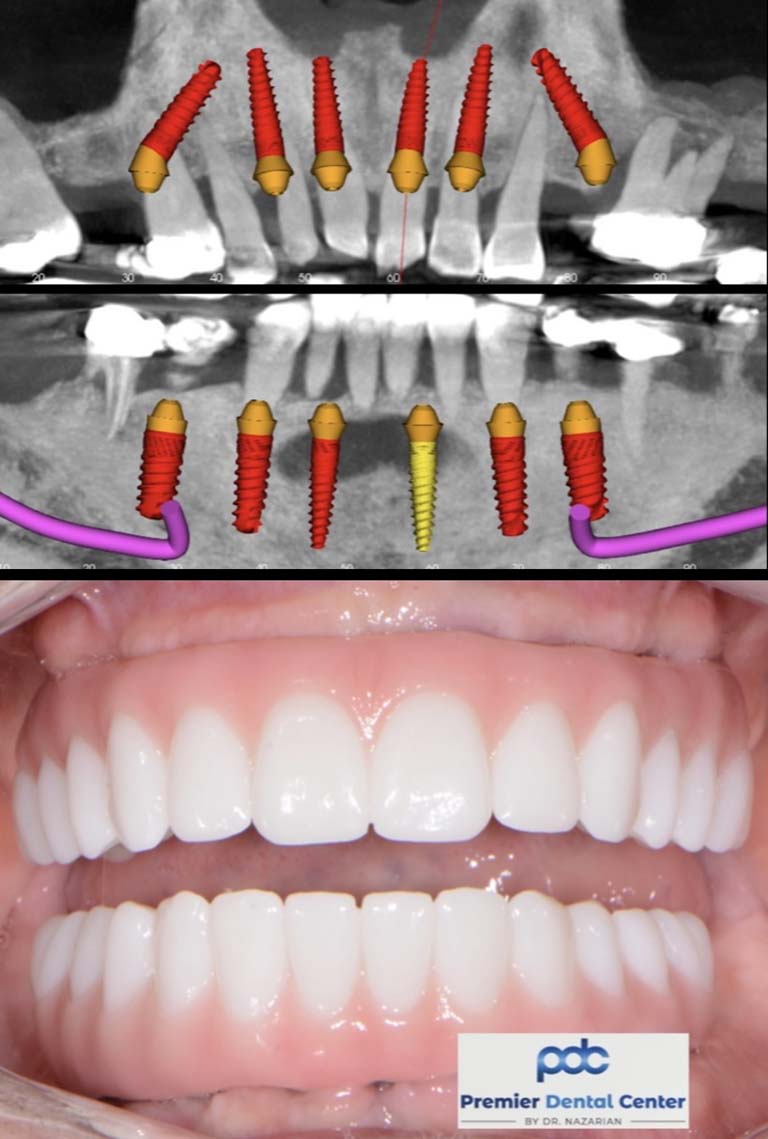The Only Guide for Dental Sense
The Only Guide for Dental Sense
Blog Article
The Main Principles Of Dental Sense
Table of ContentsThe Of Dental SenseThe Greatest Guide To Dental SenseFacts About Dental Sense UncoveredThe Dental Sense Statements
are clinical devices operatively implanted right into the jaw to recover an individual's ability to chew or their appearance. They give assistance for synthetic (phony) teeth, such as crowns, bridges, or dentures. When a tooth is lost because of injury or illness, a person can experience complications such as rapid bone loss, faulty speech, or adjustments to eating patterns that lead to pain.Dental dental implant systems are composed of a dental implant body and dental implant abutment and may also include a joint addiction screw. Wisdom tooth cavity. The dental implant body is surgically inserted in the jawbone in area of the tooth's origin. The oral implant abutment is generally affixed to the dental implant body by the abutment addiction screw and prolongs with gum tissues right into the mouth to sustain the affixed synthetic teeth
(http://tupalo.com/en/users/8103990)Structure of The Oral Implant System picking dental implants, talk with your oral supplier concerning the potential advantages and threats, and whether you are a candidate for the treatment. Points to take into consideration: Your general health and wellness is a vital consider identifying whether you are a great candidate for dental implants, how much time it will require to heal, and how much time the implant might remain in location.
Cigarette smoking may affect the recovery procedure and lower the long-lasting success of the implant. The healing process for the implant body may take numerous months or longer, throughout which time you usually have a momentary abutment in location of the tooth. the oral implant treatment: Very carefully adhere to the oral hygiene directions provided to you by your dental service provider.
Our Dental Sense Ideas
Implant failing can result in the demand for an additional operation to fix or change the dental implant system. Recovers the capacity to chew Brings back aesthetic appearance Assists keep the jawbone from diminishing due to bone loss Maintains the wellness of the surrounding bone and gums Assists maintain nearby (nearby) teeth secure Enhances quality of life Damages to surrounding natural teeth during dental implant positioning Injury to the surrounding tissues during surgical treatment, such as sinus opening Injury throughout surgical procedure (as an example, crack of surrounding jawbone) Poor feature, such as feeling like the teeth do not bite together typically A feeling that the tooth hangs or turning in position resulting from an abutment screw loosening Implant body failing (looseness of the implant body) as a result of systemic infection, which may be a lot more most likely in people with uncontrolled diabetes mellitus because of regional infection in bone and gum tissues supporting the dental implant body as a result of delayed recovery, which may be most likely in individuals who smoke Trouble cleaning up the gums around the dental implant, leading to bad oral health Untreated gum disease Post-surgical numbness because of nerve impingement or damage Constantly inform healthcare service providers and imaging specialists that you have dental implants prior to any kind of magnetic vibration imaging (MRI) or x-ray procedures.
FDA is not aware of any kind of damaging events reported for MRI or x-ray treatments with oral implants. Oral implants systems are usually made of products that adhere to global agreement requirements of the International Company for Standardization (ISO) or ASTM International. These standards have details of what makes a risk-free material.

A dental implant is a framework that replaces a missing out on tooth. With screw-like gadgets, the specialist inserts an implant into the jawbone, and it functions as a support for a man-made tooth, called a crown. A tool called an abutment links the man-made tooth to the dental implant. The crown is custom-made to top article fit the person's mouth and match the shade of their teeth.
Dental Sense Things To Know Before You Buy
Some individuals are not qualified for oral implant surgical procedure. It is for oral doctors to operate individuals with: intense illnessuncontrollable metabolic diseasebone or soft tissue condition or infectionIf these issues are fixed, an individual can have the surgical procedure. In, dental surgeons avoid operating on individuals with: If people with any of the above go through dental implant surgical treatment, there is a greater risk of the implant stopping working.

Oral dental implant surgery is an individualized process. Provide you time to recover. Attach the message and final crown, bridge or denture.
Next, your specialist will thoroughly put the dental implant right into your jaw. If your implant is near the front of your mouth, your dental professional will make a temporary tooth for you to put on up until you recover.
The Ultimate Guide To Dental Sense
Your copyright can tell you what to anticipate in your scenario. Throughout the healing phase, your jawbone should fuse to the dental implant. This process, called osseointegration, is vital for security and long-term success. This process can take anywhere from 3 to nine months. In many cases, it may take much longer.
As soon as your dental implant heals, your dental professional can attach the joint (small adapter post) and your final remediation (crown, bridge or denture). This typically takes about one hour to complete and might call for a second small surgery. You shouldn't really feel any kind of discomfort during your oral implant procedure since your company will use drug to numb your gums.
Report this page